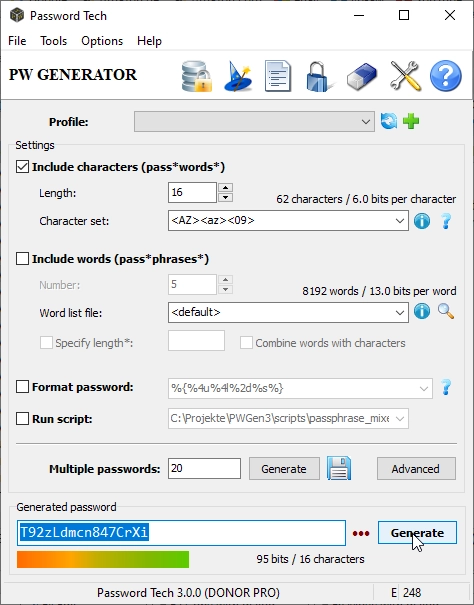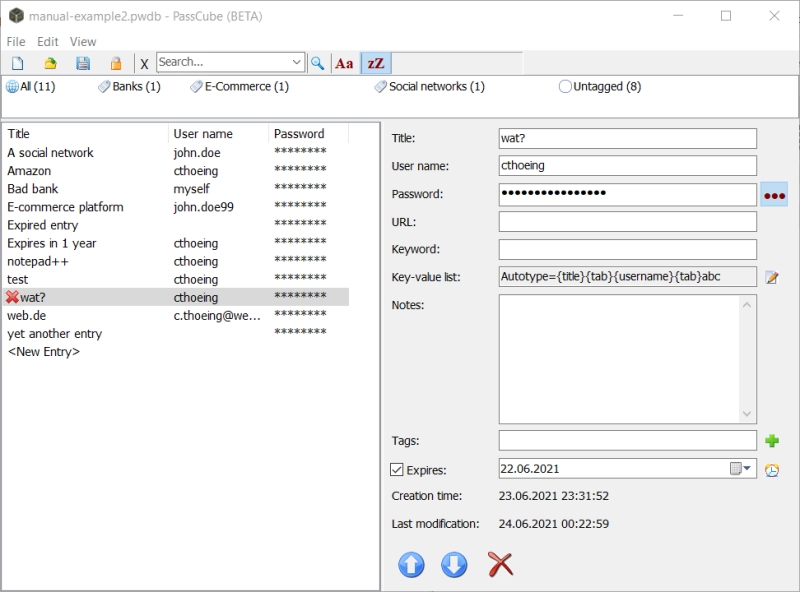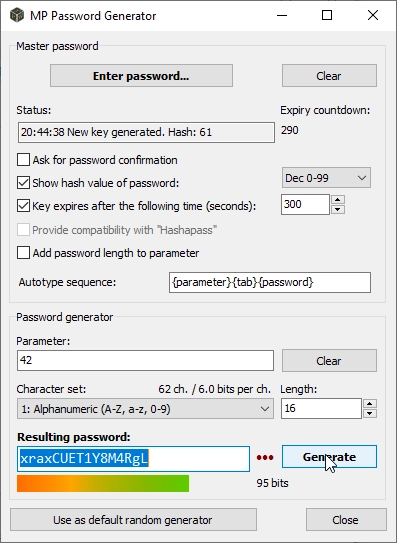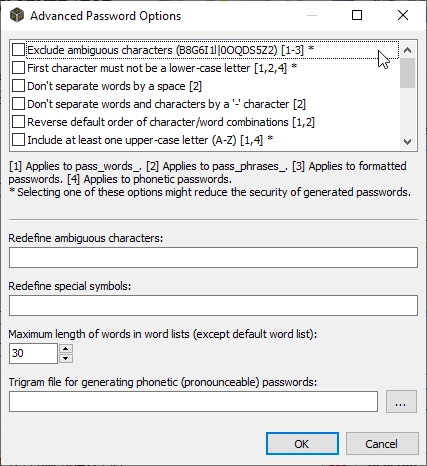Password Tech 3.5.3
Start Download Now 
Windows
| PwTech-3.5.3-Setup.exe | 12.14 MB |
| Price | Free |
| Version | 3.5.3 |
| Release Date | December 14, 2023 |
| Publisher | Christian Thöing - https://pwgen-win.sourceforge.io |
| Publisher's Description | |
Password Tech is a Windows application that can help you generate secure passwords and generally any kind of secure key for access control and data protection. To this end, it uses a cryptographically secure pseudo-random number generator based on strong cryptographic algorithms:
- Random generation through a combination of the one-way hash function SHA-256 and the encryption algorithm Advanced Encryption Standard (AES) or ChaCha20 with a 256-bit key.
- Entropy accumulation by collecting volatile system parameters and exploiting indeterministic timing from user input such as keystrokes, mouse clicks, and mouse movements.
Password Tech is capable of generating a large variety of passwords and passphrases, which may be composed of purely random characters or words, or follow certain rules, so that they can be memorized more easily:
- Passwords composed of random characters from a character set.
- Passphrases composed of random words from a word list.
- Phonetic (pronounceable) passwords based on language-specific trigram (3-letter) frequencies.
- Passwords based on user-defined patterns (formatted passwords) using a variety of placeholders for different character sets.
- Execution of Lua scripts with a programming interface to Password Tech allows full control over the process of password generation.
- Generation of large amounts of passwords at once, which can be displayed in a window, stored in a file, or output on the console.
- Full Unicode support in the entire application. Unicode encodings UTF-8 and UTF-16 (both LE and BE) are supported (conversion to non-Unicode ANSI character encoding is also possible, in case Unicode is not needed).
Apart from generating secure passwords, Password Tech provides many useful functionalities related to password usage and storage:
- Password manager functionality through databases encrypted with a master password, containing passwords associated with a title, user name, URL, etc.
- Strong encryption using AES or ChaCha20 with a 256-bit key.
- Automatic insertion of passwords in website forms and other applications through an “autotype” functionality.
- “Password hasher” that generates passwords from a master password and a variable parameter (similar to Hashapass).
- Encryption of clipboard text and password lists using AES with a 256-bit key.



